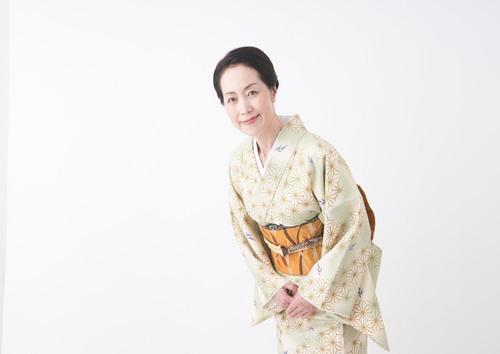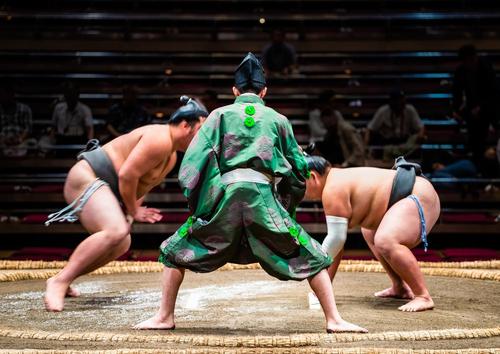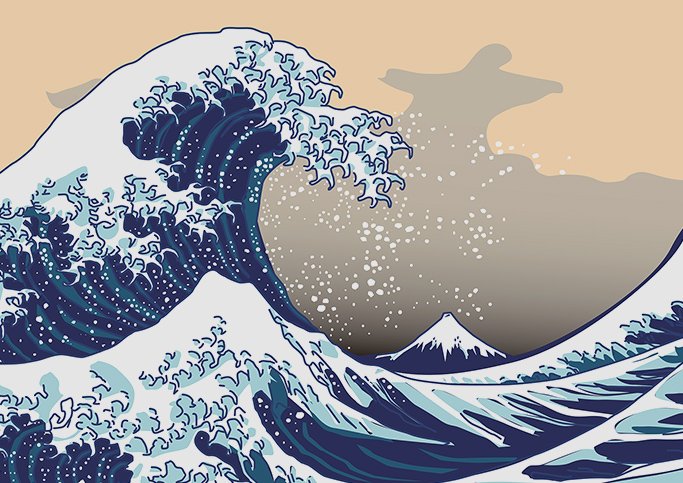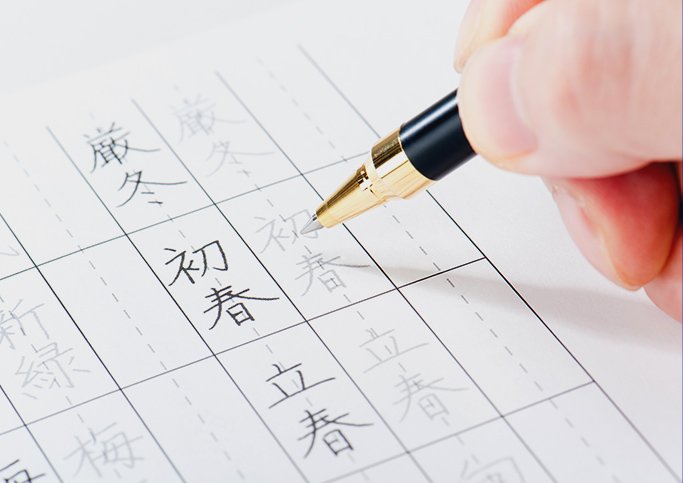
difficult
kantan/muzukashī… How to say “easy” and “difficult” in Japanese
6/14/2021
There are many kinds of expressions for “easy” and “difficult” in Japanese. The way of expression changes depending on whether you use it in business situations or you are talking with friends and family. Use the right expressions for the right situation!
1. 簡単(kantan)
In Japan, the word “簡単” (kantan) is often used to mean that it doesn't take a lot of time or effort. The kanji for “簡単” (kantan) is said to have the meaning of “things are rough and simple.” You can use the word “簡単” (kantan) in daily conversation and business situations to describe things that can be done quickly and without much effort or time.
Example
今日の試験は簡単だった。
Kyō no shiken wa kantan datta.
The test today was easy.
Example
私は簡単な運動をして眠る。
Watasi wa kantan na undō wo shite nemuru.
I do some simple exercises and go to sleep.
Example
このスマートフォンは簡単に設定できますよ!
Kono sumātofon wa kantanni settei dekimasu yo!
You can easily set this smartphone!
2. 余裕(yoyū)
The word “余裕” (yoyū) is used to describe a state in which the person who is the subject of the action is slow and unhurried. In other words, what you do is easy and relaxed. “余裕” (yoyū) is used to describe a person's attitude or mental state that is relaxed.
Example
私は余裕でマラソンを完走できます。
Watasi wa yoyū de marason wo kansou dekimasu.
I can finish a marathon easily.
Example
彼は余裕の表情を浮かべた。
Kare wa yoyū no hyōjō wo ukabeta.
He had a calm look on his face.
3. 楽(raku)
The word “楽” (raku) is often used to describe a state of being in a comfortable and peaceful state without physical or mental distress. “楽” (raku) is often expressed in casual situations, such as conversations between family members or friends.
Example
楽あれば苦あり。
Raku areba ku ari.
No rose without a thorn.
Example
私は楽をして生きたい!
Watasi wa raku wo shite ikitai!
I want to live with no stress!
Because “楽” (raku) indicates a state of being free from physical and mental pain, it may have the negative meaning of “not wanting to do something painful,” and in some cases, it may give the impression of “a lazy person who doesn't work hard.” So it is a good idea to avoid using it in business conversations, no matter how close you are with the person.
Example
まだ若いのに楽ばっかりして!
Mada wakai noni raku bakkari shite!
You are still young, but you are slacking off!
4. らくちん(rakutin)
The word “らくちん” (rakutin) has almost the same meaning as “楽” (raku), but there is a difference in the origin of the word. The word “らくちん” (rakutin) is derived from a child’s word and is used by adults to tell a small child that something is “easy.” However, “らくちん” (rakutin) can also be used by adults. For example, it is used in casual conversations between adults, and because of its gentle pronunciation, “らくちん” (rakutin) is sometimes used as a product name.
Example
車は歩かなくてもいいから、らくちんだね。
Kuruma wa arukanakutemo iikara, rakutinda ne.
Cars are so much easier because you don't have to walk.
Example
洗濯機は服をらくちんに洗えるよ。
Sentakuki wa fuku wo rakutin ni araeruyo.
The washing machine can wash your clothes with ease.
5. 易しい(yasashī)
The word “易しい” (yasashī) is used when things are simple and easy to understand and learn. In addition to being simple, the word also means “easy to understand and considerate.” The word “易しい” (yasashī) is not often used in conversation, but it is often used in writing, such as in business emails and essays, and other slightly formal texts.
Example
この問題は比較的易しいといえます。
Kono mondai wa hikakuteki yasashī to iemasu.
This problem is relatively easy.
[日本のことが気になる?一緒に日本語を学びませんか?]
6. 難しい(muzukashī)
The word “難しい” (muzukashī) is used when something is complicated and difficult to understand or master. The word “難しい” (muzukashī) is usually used to express difficulty, but in business situations, it is common to use “難しい” (muzukashī) to tell someone that something is almost impossible.
Example
この問題は難しい。
Kono mondai wa muzukashī.
This problem is difficult.
Example
あまり難しく考えない方が良いよ。
Amari muzukashiku kangaenai hō ga yoiyo.
You should not take it too seriously.
Example
この商品の値引きは難しいです。
Kono syōhin no nebiki wa muzukashī desu.
I can't give you a discount on this item.
7. ムズイ(muzui)
The word “ムズイ” (muzui) is an abbreviation of “難しい” (muzukashī), which is used mainly by young people. It has the same meaning as “難しい” (muzukashī). It is a casual expression used mainly by young people, so there is no problem using it in conversations with family and friends. However, in formal situations such as business, it is better to use “難しい” (muzukashī) without abbreviation.
Example
このゲームを攻略するのはムズイ。
Kono gēmu wo kōryaku suru no wa muzui.
It is hard to win this game.
8. 大変(taihen)
The word “大変” (taihen) is often used when things are serious and cannot be dealt with immediately. The word “大変” (taihen) is appropriate when the process of doing something is very difficult, but can be handled in the end.
Example
勉強と部活動の両立は大変だ。
Benkyō to bukatudō no ryōritu wa taihen da.
It's hard to balance studying and club activities.
Example
準備が大変で困っている。
Junbi ga taihen de komatte iru.
I'm having a hard time preparing.
9. やっかい(yakkai)
The word “やっかい” (yakkai) is used when something is troublesome or difficult to handle. It can also be used when you need someone else to take care of you. From the Chinese word “厄会”, it is said to have the meaning of “circumstances of disaster.” It may not be used much in daily life, but you may hear it in movies or anime.
Example
やっかいな問題が起きてしまったようだ。
Yakkai na mondai ga okite simatta yōda.
A difficult problem has happened.
Example
しばらくやっかいになるよ。
Sibaraku yakkai ni naru yo.
You'll be looking after me for a while.
10. 厳しい(kibishī)
“厳しい” (kibishī) is a term often used to describe an unrelenting and uncompromising attitude toward rules and decisions. Compared to the word “難しい” (muzukashī), it is characterized by its strong connotations of “uncompromising” and “impossible.” It's a good way to tell someone you don't want to compromise or can't.
Example
この学校の規則は厳しいと思う。
Kono gakkō no kisoku wa kibishī to omou.
I think that the rule of this school is severe.
Example
この期日までに仕事を終わらせるのは厳しいです。
Kono kijitu made ni shigoto wo owareseru no wa kibishī desu.
I can’t finish the work by this date.
In Japanese, there are many words to express ease and difficulty. The more you learn about the Japanese language, like many ways to say “easy” and “difficult,” the richer your expressions will become. Why don't you study Japanese more and learn to speak various expressions in Japanese?
If you want to study Japanese right away, why don't you sign up for a free membership to Human Academy Japanese Language School Plus. You can experience practical Japanese lessons by experienced teachers for free.
CATEGORIES
FEATURED TAGS
RECOMMENDATION
-
 報BUSINESS TERMS
報BUSINESS TERMSWhat is ”Ho-Ren-So”, one of the basic manners when working in Japan?
10/30/2020
-
 伝WORDS & GRAMMAR
伝WORDS & GRAMMARWhat is easy Japanese?
10/30/2020
-
 礼MANNERS
礼MANNERSJapanese greeting customs and origins. What are the greetings from other countries?
10/30/2020
-
 戯COMIC & GAME
戯COMIC & GAMEThe roots of animation and manga? Introducing bird and beast caricatures
10/30/2020
-
 戦SPORTS
戦SPORTSThe history of sumo goes back to the mythical world! ?? Transition from myth to modern times
10/30/2020
LET’S PLAY
KARUTA!
Do you know the meaning of this...
NEXT...
FURTHER EXPLORATION
INTERESTED
IN JAPAN?
WHY DON’T YOU
LEARN JAPANESE WITH US?
START LEARNING
JAPANESE
WITH HUMAN ACADEMY!
ONE OF
THE MOST POPULAR
JAPANESE
LANGUAGE SCHOOLS
JAPANESE
LANGUAGE SCHOOL
OFFERING EXCELLENT
DETAILED LESSONS

ONLINE SCHOOL
- Learn with your classmates from all over the world
- Variety of Courses for All Needs
- FREE Trial Lesson available

TOKYO, OSAKA
- Offer the Best Curriculum for You
- Make New Japanese Learning Friends
- Many Opportunities to Practice Japanese
MAKE FURTHER
STEPS
WITH HUMAN ACADEMY!
ONE OF
THE MOST POPULAR
JAPANESE
LANGUAGE SCHOOLS
JAPANESE
LANGUAGE SCHOOL
PRODUCING MANY
JLPT N1 CERTIFIED
STUDENTS!

ONLINE SCHOOL
- Learn with your classmates from all over the world
- Variety of Courses for All Needs
- FREE Trial Lesson available

TOKYO, OSAKA
- Support Your Higher Goal of Japanese Learning
- Perfect Environment for Japanese Learners
- Learn with Your New Japanese Study Mates
























